Do you feel creatively dried up? Do you feel a complete lack of creativity in your professional and personal life? If so, the Japanese concept of Datsuzoku may be just what you need to unlock your creative powers.
When you become stuck in routine life, it is likely that you will feel a lack or loss of creativity in your life as creativity does not emerge from a monotonous lifestyle. This is why it is crucial to incorporate Datsuzoku in daily life.
But exactly what is Datsuzoku? And how to practice Datsuzoku? It is a philosophy that has long been revered in Japanese culture for a long time. And by understanding Datsuzoku significance you can build a more creative and Zen lifestyle for yourself.
What is Datsuzoku?
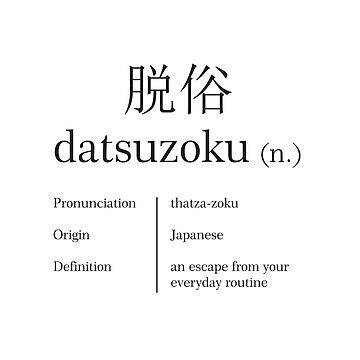
At its core, Datsuzoku is a mindset – a way of being that encourages us to break free from the constraints of our everyday lives and embrace the unknown. It is a conscious decision to step away from the familiar, to let go of our preconceptions, and to immerse ourselves in new experiences and perspectives.
When we engage in Datsuzoku, we are actively choosing to step outside of our comfort zones, to let go of the need for control, and to surrender to the flow of the present moment. This can take many forms, whether it’s embarking on a spontaneous adventure, trying a new creative pursuit, or simply taking a mindful walk in nature.
By doing so, we open ourselves up to the possibility of serendipitous encounters, unexpected insights, and a renewed sense of wonder. It is in these moments of Datsuzoku that we often find the greatest inspiration and creative fulfillment.
Related: How Giving Yourself A Break Can Unblock Your Creativity
Understanding Datsuzoku
The term Datsuzoku roughly translates to “freedom from routine” or “escape from the ordinary,” in Japanese. It is the idea that by stepping beyond our comfortable and monotonous lives, we can open ourselves up to new experiences, innovative ideas, and a deeper connection with our inner selves.
In a world that often demands efficiency, productivity, and conformity, the practice of Datsuzoku is a refreshing antidote. It provides us a way to reclaim our curiosity, awe and creative expression.
When we incorporate Datsuzoku in daily life, we can tap into the well of creativity that lies within us, allowing us to approach our work, our hobbies, and our very lives with a renewed sense of purpose and joy.
Datsuzoku Significance: Why Should You Practice It?
In a world that is increasingly fast-paced and highly structured, the practice of Datsuzoku has become more important than ever.
As we find ourselves constantly bombarded with information, deadlines, and social pressures, it can be easy to lose touch with our innate creativity and sense of personal freedom. Why? Because creativity does not emerge from a monotonous lifestyle.
Datsuzoku, however, offers a powerful antidote to this modern malaise. By embracing the spirit of Datsuzoku, we can reclaim our sense of autonomy and self-expression, allowing us to approach our lives and our work with a renewed sense of purpose and vitality.
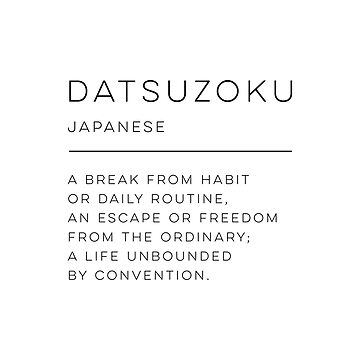
Moreover, the practice of Datsuzoku has been shown to have a profound impact on our overall well-being. By stepping away from the demands of our daily routines, we can reduce stress, boost mood, and enhance our cognitive function – all of which can have a positive impact on our creative abilities.
Researchers have found that individuals who engaged in activities that fostered a sense of Datsuzoku, such as mindful walks in nature, were more likely to exhibit increased creativity and problem-solving skills.
This suggests that the practice of Datsuzoku can be a powerful tool for unlocking our creative potential and enhancing our overall well-being.
Related: Creativity Is More Than Just Coming Up With Ideas
How to Practice Datsuzoku
Embracing the spirit of Datsuzoku is not a one-size-fits-all endeavor. Rather, it is a highly personalized journey that requires us to tap into our own unique interests, passions, and ways of engaging with the world.
However, there are some key principles and practices that can help us cultivate a greater sense of Datsuzoku in our lives.
1. Embrace spontaneity
One of the core tenets of Datsuzoku is the embrace of spontaneity. Instead of rigidly following a set schedule or plan, try to leave room for unexpected experiences and serendipitous encounters. This could mean taking a different route to work, saying yes to a spontaneous invitation, or simply allowing yourself to get lost in an unfamiliar part of town.
By letting go of the need for control and embracing the unknown, we can open ourselves up to new perspectives and sources of inspiration.
2. Engage in mindful exploration
Another key aspect of Datsuzoku is the practice of mindful exploration. This involves actively cultivating a sense of presence and curiosity as we engage with our surroundings, whether that’s through a leisurely stroll, a visit to a museum, or a simple conversation with a stranger.
By tuning into the sensory experience of our environment, we can tap into a deeper well of creative inspiration. We might notice the play of light and shadow on a building, the unique textures of a found object, or the subtle nuances of a conversation – all of which can serve as rich sources of creative fodder.
3. Seek out new experiences
Datsuzoku also encourages us to seek out new experiences and perspectives, whether that’s through travel, learning a new skill, or engaging with unfamiliar cultural traditions. By stepping outside of our comfort zones and immersing ourselves in the unfamiliar, we can challenge our preconceptions, expand our horizons, and unlock new avenues for creative expression.
This might involve taking a cooking class in a foreign cuisine, attending a lecture on a topic outside of your field, or even embarking on a solo adventure to a place you’ve never been before.
Related: Overactive Imagination: How to Tame Your Wild Thoughts and Channel Your Creative Genius
4. Cultivate a beginner’s mindset
At the heart of Datsuzoku is the cultivation of a beginner’s mindset – the willingness to approach even the most familiar tasks or subjects with a sense of wonder and openness. This can be particularly valuable for creative individuals who may find themselves falling into established patterns of thinking or execution.
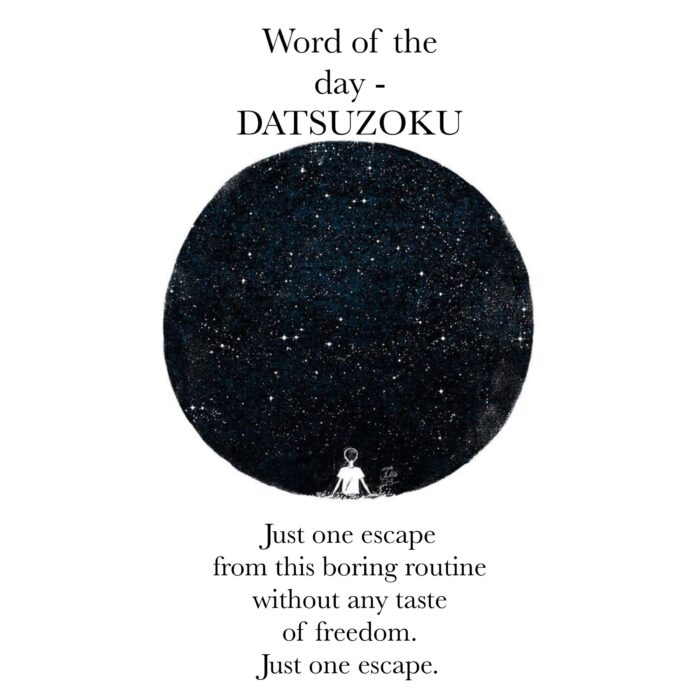
By letting go of the need to be an expert and instead embracing the beginner’s mindset, we can tap into a wellspring of creativity and innovation. We might experiment with new techniques, challenge our assumptions, or approach a problem from a radically different perspective.
5. Make time for reflection and renewal
Finally, the practice of Datsuzoku requires us to make time for reflection and renewal. This might involve setting aside time for journaling, meditation, or simply unplugging from technology and engaging in a quiet, contemplative activity.
By taking the time to process our experiences and connect with our inner selves, we can deepen our understanding of our creative impulses and better align our work and our lives with our true passions and values.
Embracing the Datsuzoku Mindset
Ultimately, the practice of Datsuzoku is not about a single, prescribed set of activities or behaviors. Rather, it is a way of being – a mindset that encourages us to approach our lives and our work with a sense of openness, curiosity, and creative freedom.
Whether you’re a writer, an artist, an entrepreneur, or simply someone looking to add a little more spark to your daily routine, embracing the spirit of Datsuzoku can be a powerful tool for unlocking your creative potential and adopting a more fulfilling, inspired Zen lifestyle.
Related: What Emotions Help Creativity? Why Creativity Is Not Solely Dependent on Happiness
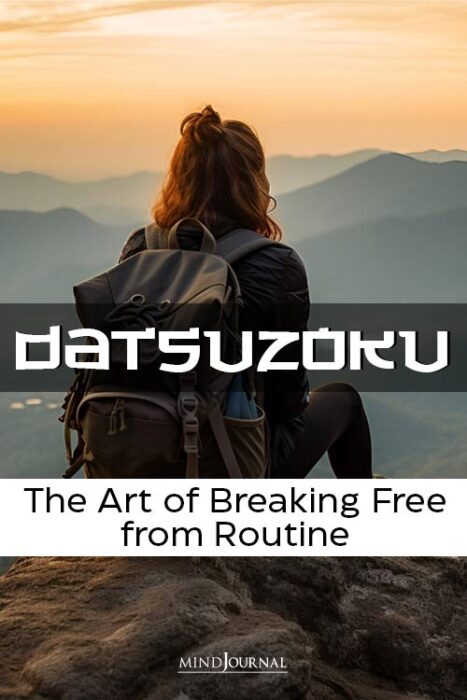

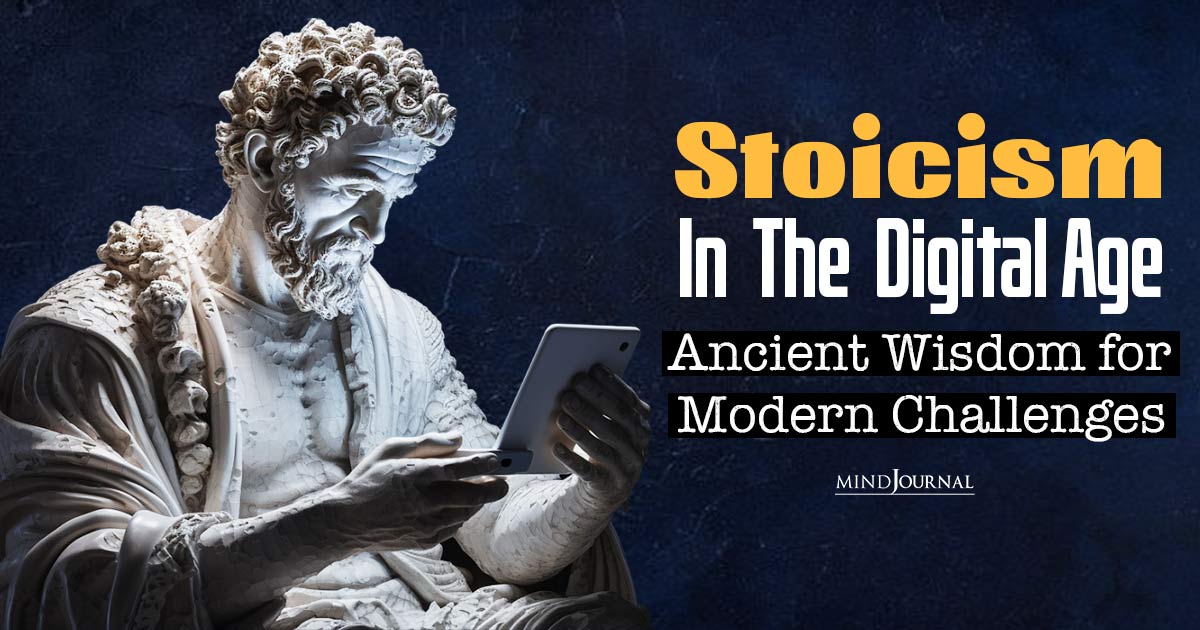



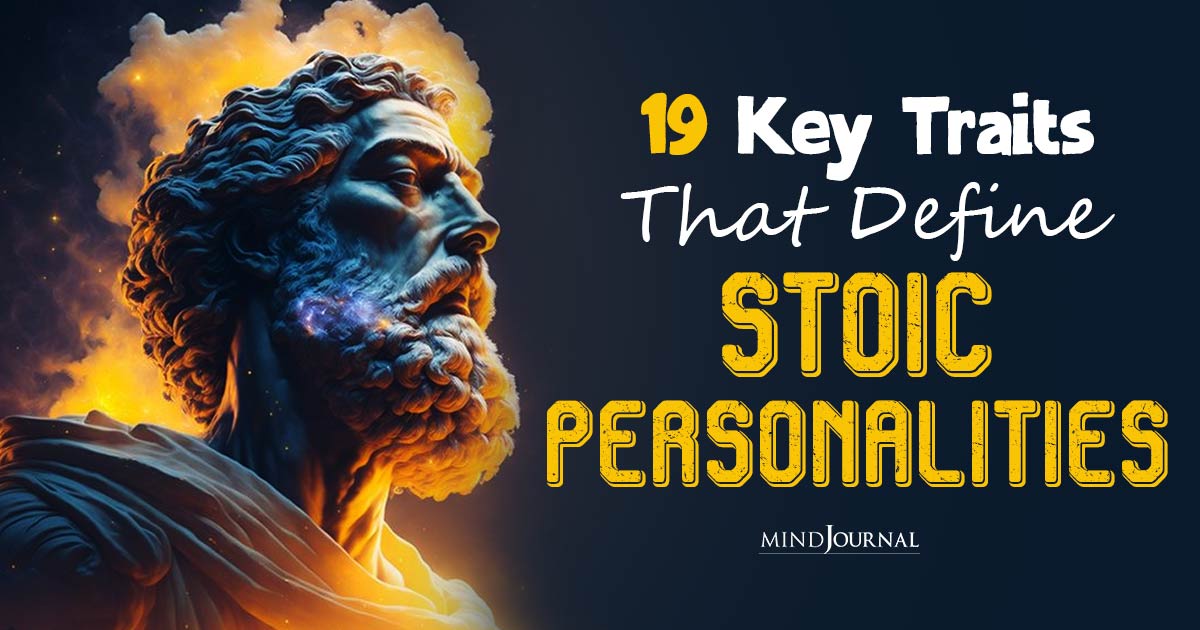
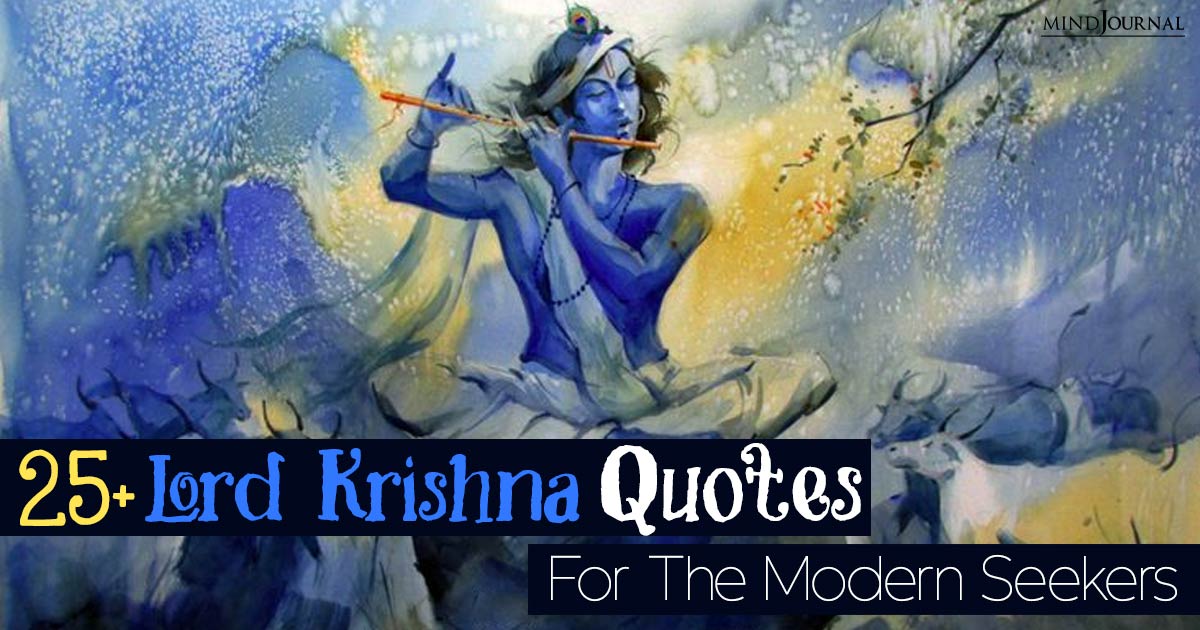
Leave a Reply
You must be logged in to post a comment.